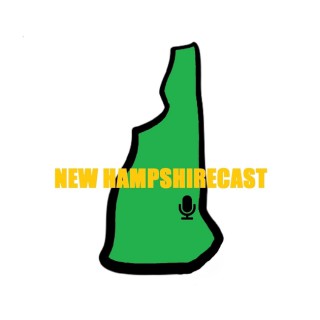Podcast appearances and mentions of Henry Huntington
- 14PODCASTS
- 23EPISODES
- 55mAVG DURATION
- ?INFREQUENT EPISODES
- Jul 16, 2024LATEST
POPULARITY
Best podcasts about Henry Huntington
Latest news about Henry Huntington
- This Day in Labor History: April 24, 1903 Lawyers, Guns & Money - Apr 24, 2023
- Remembering Redondo Beach’s Forgotten Indigenous, Salt, and Surf History L.A. TACO - Mar 23, 2023
Latest podcast episodes about Henry Huntington
‘Inventing Paradise' traces Los Angeles' origins to six crucial people who willed the city to exist
“Los Angeles is a city that should not exist.” So reads the first line of Paul Haddad's latest book Inventing Paradise: The Power Brokers Who Created the Dream of Los Angeles. L.A., he writes, has no natural features that would lend themselves to sustaining millions of residents. And yet, Los Angeles does exist. And not only that, it's the second-largest city in the country and known the world over for its beautiful weather, diverse population and being the home of American film, among many other things. So, why does a city that shouldn't exist…exist? As Haddad writes, it was willed into existence despite the odds being stacked against it. And while there are many people one could point to as seminal to the story of Los Angeles' existence, Haddad focuses on six individuals who had particularly significant influence on the city's growth. They include investor and newspaper publisher Harry Chandler, businessman Phinneas Banning, one of the founders of the former town, now neighborhood, of Wilmington and the “Father of the Port of Los Angeles” and railroad magnate Henry Huntington, just to name a few. Today on AirTalk, Paul Haddad joins Larry to talk about his new book.
Henry Huntington is President & CEO of Pleasant View Gardens in Loudon, NH. True innovators, the Huntington family, now its third generation of leadership at Pleasant View Gardens have built one of the most recognized brands in horticulture and have no plans to slow down any time soon. Everything's coming up roses (and petunias and more) on this episode. Then stay tuned for The Buzz with Matt & Nathan. Learn more about Pleasant View Gardens and the Proven Winner Brand
Listen in as Liz & Paul discuss Dead Weight, starring Peter Falk, Eddie Albert, Suzanne Pleshette, Kate Reid, and Timothy Carey. In this episode, we discuss the history of Collins Island, Henry Huntington's impact all over LA, amazing 1970s fashion on Suzanne Pleshette & Kate Reid, Minnie & Moskowitz and more. If you’d like to add to our conversation, you can email us at trenchcoatcigar@gmail.com, or find us on instagram at @trenchcoatcigar or tweet us @trenchcoatcigar. Thanks for listening!
Entry 14: Indigenous Knowledge and Arctic Policy with Henry Huntington
In this episode of From the Field, Henry Huntington, an independent researcher and Arctic Science Director at Ocean Conservancy, explains how the combination of traditional knowledge and scientific knowledge regarding the ecology of marine mammals, use of sea ice and climate change can accurately and effectively influence policy. He further explains how indigenous knowledge must be accepted within in the scientific community and Indigenous Peoples must be credited for their long lineage of knowledge and work in the Arctic.
Civil War scholar and former Harvard president Drew Gilpin Faust explores the ways The Huntington's collections have served as a critical resource for our understanding of the Civil War for this 2020 Founders' Day Lecture. Although the collection started with Henry Huntington, it has expanded since the library's founding, bringing new insights about the war's causes, motivations, and consequences.
Civil War scholar and former Harvard president Drew Gilpin Faust explores the ways The Huntington's collections have served as a critical resource for our understanding of the Civil War for this 2020 Founders' Day Lecture. Although the collection started with Henry Huntington, it has expanded since the library's founding, bringing new insights about the war's causes, motivations, and consequences.
Benjamin Franklin: The Never Completed American Founder
Joyce Chaplin, James Duncan Phillips Professor of Early American History at Harvard University, revisits "The Autobiography of Benjamin Franklin," which was one of Henry Huntington's most prized manuscript acquisitions. Franklin tells a tantalizingly open-ended story about his life because the manuscript was left unfinished.
Benjamin Franklin: The Never Completed American Founder
Joyce Chaplin, James Duncan Phillips Professor of Early American History at Harvard University, revisits "The Autobiography of Benjamin Franklin," which was one of Henry Huntington's most prized manuscript acquisitions. Franklin tells a tantalizingly open-ended story about his life because the manuscript was left unfinished.
Hamlet and Other Ghost Stories
Henry Huntington acquired one of the rarest books in the history of English literature: the so-called "bad quarto" of Hamlet. Zachary Lesser, professor of English at the University of Pennsylvania, discusses how this book's discovery in 1823 transformed our ideas about Hamlet, how it made its way to The Huntington, and what can we learn through this book's history about modern libraries.
Henry Huntington acquired one of the rarest books in the history of English literature: the so-called "bad quarto" of Hamlet. Zachary Lesser, professor of English at the University of Pennsylvania, discusses how this book's discovery in 1823 transformed our ideas about Hamlet, how it made its way to The Huntington, and what can we learn through this book's history about modern libraries.
The Founder and the Future: Becoming Henry Huntington
William Deverell, director of the Huntington-USC Institute on California and the West, explores the life of Henry E. Huntington (1850-1927) against the backdrop of American history. This program is a Haynes Foundation Lecture.
The Founder and the Future: Becoming Henry Huntington
William Deverell, director of the Huntington-USC Institute on California and the West, explores the life of Henry E. Huntington (1850-1927) against the backdrop of American history. This program is a Haynes Foundation Lecture.
Ethan and Chris sit down with Henry Huntington the President and CEO of Lef Farms, located in Loudon, to discuss their hydroponic farming operation. NewHampshirecast@gmail.com Twitter: @NHCast Facebook.com/NewHampshirecast Lef FarmsLef Farms Website
Mark Twain Imagined the Raft and Henry Huntington Built It
Laura Skandera Trombley became the eighth president of The Huntington Library, Art Collections, and Botanical Gardens in July 2015. However, her history with the institution began much earlier. A specialist on Mark Twain, Trombley began conducting research at The Huntington as a young scholar, using rare materials in the Library to help shape her doctoral thesis. She is the author of five books. Her most recent, “Mark Twain’s Other Woman: The Hidden Story of His Final Years,” was published in 2010. As a graduate student, she discovered the largest known cache of Mark Twain’s letters, which ultimately became the primary source material for her dissertation and her 1994 book, “Mark Twain in the Company of Women.” Her other books include “Constructing Mark Twain: New Directions in Scholarship (2002)”, “Critical Essays on Maxine Hong Kingston (1998)”, and “Epistemology: Turning Points in the History of Poetic Knowledge (1986)."
Mark Twain Imagined the Raft and Henry Huntington Built It
Laura Skandera Trombley became the eighth president of The Huntington Library, Art Collections, and Botanical Gardens in July 2015. However, her history with the institution began much earlier. A specialist on Mark Twain, Trombley began conducting research at The Huntington as a young scholar, using rare materials in the Library to help shape her doctoral thesis. She is the author of five books. Her most recent, “Mark Twain’s Other Woman: The Hidden Story of His Final Years,” was published in 2010. As a graduate student, she discovered the largest known cache of Mark Twain’s letters, which ultimately became the primary source material for her dissertation and her 1994 book, “Mark Twain in the Company of Women.” Her other books include “Constructing Mark Twain: New Directions in Scholarship (2002)”, “Critical Essays on Maxine Hong Kingston (1998)”, and “Epistemology: Turning Points in the History of Poetic Knowledge (1986)."
Addressing Local Needs amid Global Attention to the Changing Arctic: Henry Huntington, Jennifer Schmidt and Raymond Anthony
Guest speakers share their views on emerging scientific, climate change, and indigenous issues in the Arctic . The relationship between local and global interests will highlighted. Topics include: Indigenous Science: Exchange for Local Observations and Knowledge of the Arctic (ELOKA), Food Security and Climate Ethics, Human Activities and Ecosystems in the Arctic: TUNDRA. Speakers include Jennifer Schmidt(ISER)whose research focuses on circumpolar tundra ecosystems (2:48-29:29), Henry Huntington a founder of Exchange for Local Observations and Knowledge of the Arctic, ELOKA(30:08-41:06,,and Prof. Raymond Anthony (UAA Philosophy Dept.) whose research focuses on ethics and food security issues (42.29-1:09). Discussion follows the presentations. Note: Accompanying event presentations from Jennifer Schmidt and Henry Huntington are also posted in iTunes.
Presentation for Henry Huntington , Addressing Local Needs amid Global Attention to the Changing Arctic
This is Henry Huntington’s presentation for Addressing Local Needs amid Global Attention to the Changing Arctic, At the event, guest speakers share their views on emerging scientific, climate change, and indigenous issues in the Arctic . The relationship between local and global interests will highlighted. Topics include: Indigenous Science: Exchange for Local Observations and Knowledge of the Arctic (ELOKA), Food Security and Climate Ethics, Human Activities and Ecosystems in the Arctic: TUNDRA. Note: Event podcast is also posted in iTunes. See Addressing Local Needs amid Global Attention to the Changing Arctic—Henry Huntington (0:08-41:06)
The Art of Wealth: The Huntingtons in the Gilded Age
Shelley M. Bennett talks about her new book, “The Art of Wealth: The Huntingtons in the Gilded Age,” which explores how Collis, Arabella, Archer, and Henry Huntington collected works of art in the decades around 1900 and created lasting legacies through their philanthropy. Bennett is the former curator of European art at The Huntington. She is introduced by Steve Koblik, president of The Huntington.
Private to Public: A Family History of Collecting and Philanthropy
Shelley M. Bennett, senior research associate and former curator of British and European art at The Huntington, discusses the family history of collecting and philanthropy of Collis, Arabella, Archer, and Henry Huntington for the 2012 Founder's Day lecture.
Private to Public: A Family History of Collecting and Philanthropy (2012 Founder’s Day Lecture)
Shelley M. Bennett discusses the family history of collecting and philanthropy of Collis, Arabella, Archer, and Henry Huntington. Bennett is senior research associate at The Huntington; she was The Huntington's curator of British and European art for 27 years before retiring in 2007. She is introduced by Steven Koblik, President of The Huntington.
Private to Public: A Family History of Collecting and Philanthropy (2012 Founder’s Day Lecture)
Shelley M. Bennett discusses the family history of collecting and philanthropy of Collis, Arabella, Archer, and Henry Huntington. Bennett is senior research associate at The Huntington; she was The Huntington's curator of British and European art for 27 years before retiring in 2007. She is introduced by Steven Koblik, President of The Huntington.
Men of Wealth, Men of Letters: Henry Huntington and the Builders of California’s Great Libraries (2008 Founder’s Day Lecture)
This talk explores the relationship between the scholars who use research libraries and the millionaires who built them. Albert Hurtado is the Paul H. and Doris Eaton Travis Chair in American History at the University of Oklahoma and the Los Angeles Times Distinguished Fellow at The Huntington for 2007–08.
Men of Wealth, Men of Letters: Henry Huntington and the Builders of California’s Great Libraries (2008 Founder’s Day Lecture)
This talk explores the relationship between the scholars who use research libraries and the millionaires who built them. Albert Hurtado is the Paul H. and Doris Eaton Travis Chair in American History at the University of Oklahoma and the Los Angeles Times Distinguished Fellow at The Huntington for 2007–08.

















